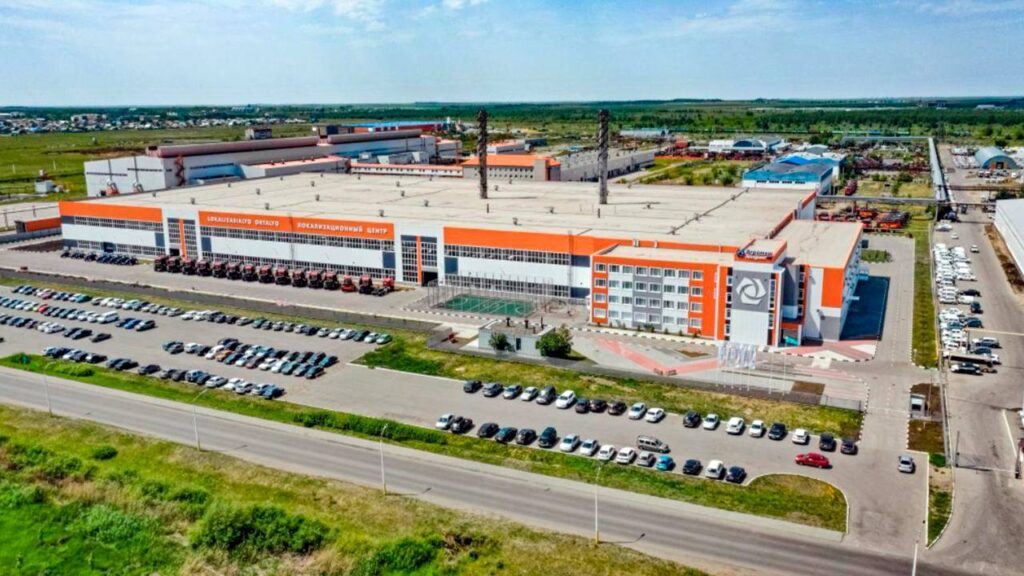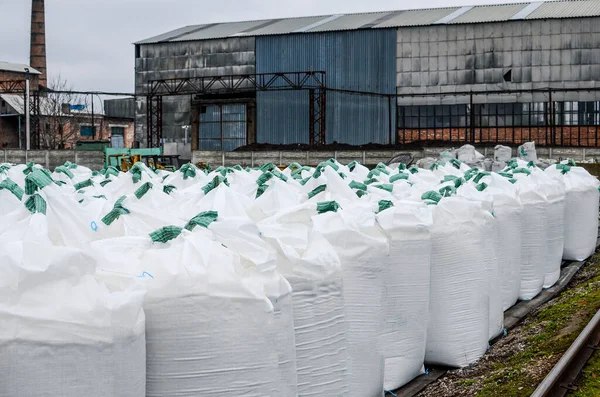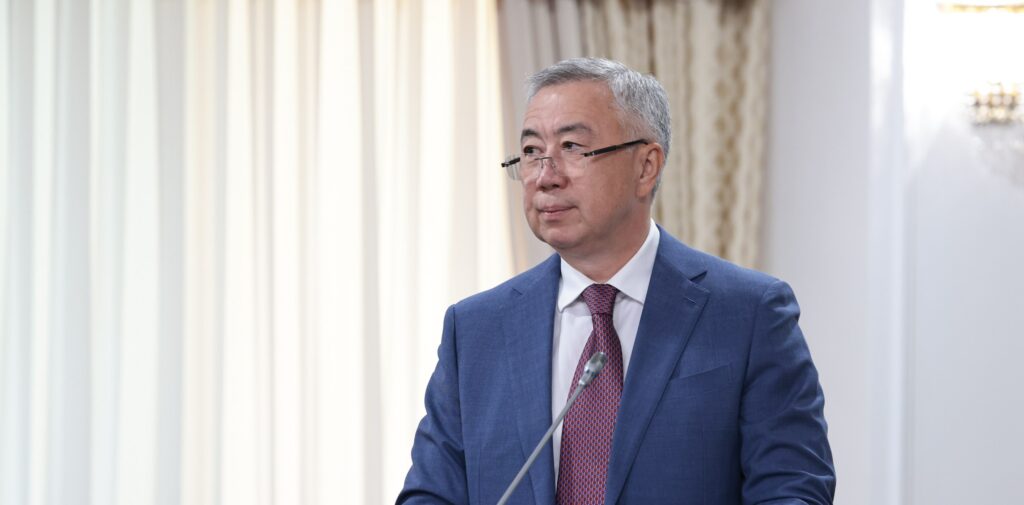With Major Plant Modernization, Kyrgyzstan Seeks To End Construction Woes
Kyrgyzstan’s construction sector received a significant boost on June 16 with the launch of a new production line at the Kant cement plant, the country’s largest cement producer. Located in the city of Kant, about 20 kilometers east of Bishkek, the plant has been in operation since 1964 and remains a cornerstone of the national construction materials industry. Its modernization was carried out in partnership with China’s Beijing Triumph Engineering and the Eurasian Development Bank, with total investments exceeding $60 million. In 2024, the plant produced 1.156 million tons of cement. The new production line is expected to add 800,000 tons of clinker capacity annually, enhancing the plant’s output and improving cement quality to better meet domestic demand. At the launch ceremony, President Sadyr Japarov emphasized the rapid growth of Kyrgyzstan’s construction sector, citing a surge in infrastructure development across the country. “In just the first three months of 2025, 3,300 residential buildings totaling 419,000 square meters were commissioned, 32.2% more than during the same period last year,” Japarov stated. Despite this expansion, Kyrgyzstan has recently faced a cement shortage due to soaring demand driven by the construction of homes, schools, roads, and social infrastructure. The surge has also led to price hikes, prompting government action. The Times of Central Asia previously reported that the Ministry of Economy and Commerce has proposed designating cement as a “socially significant good,” a status that allows the state to regulate the prices of essential materials. The ministry argued that unchecked pricing has inflated housing costs and impeded the timely completion of social projects. The modernization of the Kant cement plant is expected to help ease these pressures by increasing supply, stabilizing prices, and supporting Kyrgyzstan’s continued infrastructure development.






